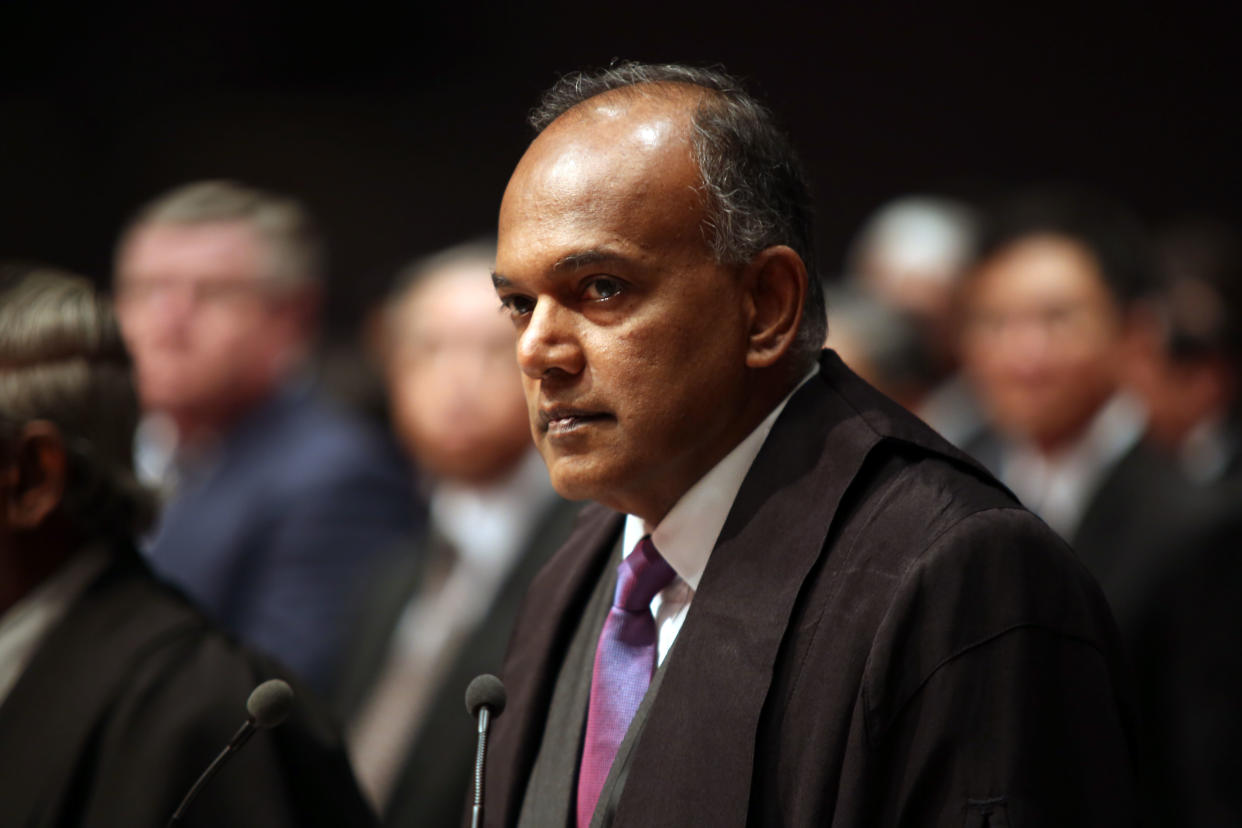Offensive speech 'more insidious' than hate speech, can lead to dehumanisation: Shanmugam

Offensive speech can lead to “dehumanisation” and create an environment “conducive to discrimination and eventually violence,” said Law and Home Affairs Minister K Shanmugam on Monday (1 April).
Delivering his Ministerial Statement in Parliament on curbing hate speech, Shanmugam said offensive speech, which can imply that its targets lack morality, intelligence or dignity, is “even more insidious” than hate speech.
Shanmugam cited the example of US comedian and ventriloquist Jeff Dunham, whose act includes puppets such as Achmed the Dead Terrorist, as an example of someone who “peddles in offensive views of various races”.
He also mentioned the offensive posts made in 2012 by former NTUC assistant director Amy Cheong, who denigrated Malays for holding void deck weddings.
“Hate speech moves on turbo charge, offensive speech is on the same trajectory but slower. It can take time, but the end result is the same,” said Shanmugam. The tone and texture of public discourse will change if such speech becomes “normalised”, he added.
“That is why we have restrictions on offensive speech, even when it is – strictly speaking – not hate speech.”
No ‘neat categories’ of speech
Noting that speech “does not fall into neat categories”, Shanmugam said “factual observations” on race and religion are necessary.
“For example, in a multiracial, multi-religious society sometimes you have to speak frankly about the issues facing one community or another – and to focus on the issues, and to try and find solutions,” he said. “There may be a need to point out the differences between the races for a variety of public policy reasons. That sort of speech is necessary and unavoidable.”
Describing Singapore’s pragmatic approach to dealing with offensive speech, Shanmugam said, “First, we look at the words, the material – how offensive are they?
“Second, we look at what is the likely impact of the speech? How would, for example, the community which is the target of the offensive speech react?”
While it may sometimes be “messy”, he said this method of dealing with offensive speech is the only tenable option for Singapore.
Not looking to pass new laws
Shanmugam explained that his aim in calling for a debate was not necessarily to pass new regulations. Instead, he said the House needed to agree on its approach to dealing with the problems of hate and offensive speech.
“We want to hear the MPs, because it is important for the next generation of Singaporeans to understand a bit of the history, to see what the ideals are and how we should go forward,” he said.
“And if we want the approach to be changed, then we should hear it in the House and that will educate the people one way or another.”
Related story:
Watain concert was cancelled due to ‘mainstream, widespread’ Christian objections: Shanmugam



